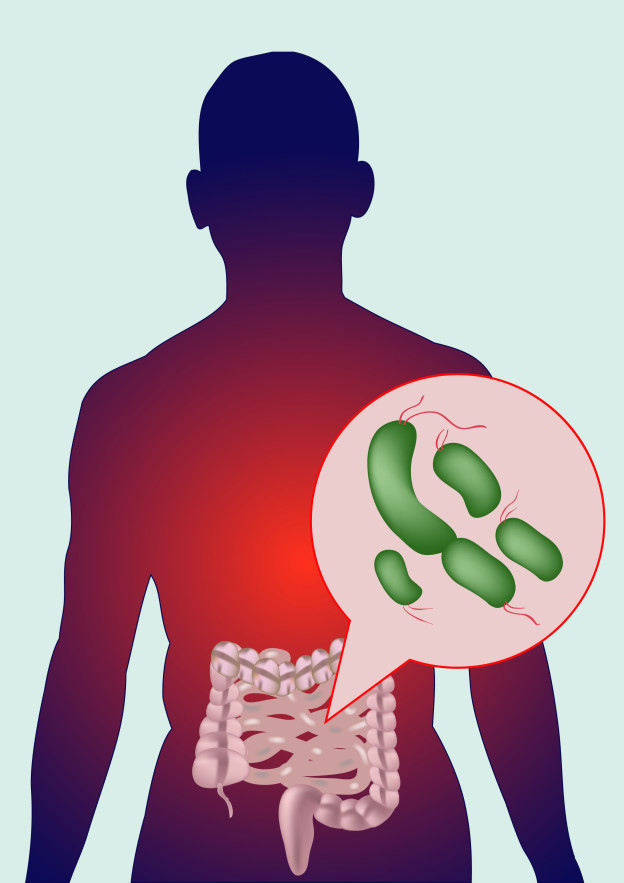The microbiome consists of bacteria and other microbes that normally inhabit the intestinal tract, airways, and skin of the body. The concept of a healthy microbiome is now gaining credibility; that is, it is important to establish and maintain a certain population of microbial species to maintain good health. It is now well known that intestinal microbes can affect digestion, allergies, and metabolic processes. More recently, discoveries have found that the microbiome can have a profound influence on the brain, affecting a person’s mood, anxiety, and stress level. The role of the microbiome on mental disorders such as autism, visceral pain, and multiple sclerosis is currently under study. The communication system between the microbiome and the brain is known as the gut-brain axis.
How is the microbiome able to exert its effects on brain function? Gut bacteria produce neurotransmitters such as serotonin, dopamine and GABA which have a role in mood. Other organisms affect how people metabolize these compounds. Gut bacteria may generate other neuroactive compounds, such as butyrate, that reduce anxiety and depression. Some microbes can activate the vagus nerve, and can be interconnected to the immune system.
How can a disordered microbiome be improved? Probiotics are living organisms present in fermented foods such as yogurt and kefir that can have a beneficial effect of improving microbial balance. Probiotics have found application in treating intestinal disorders, although much needs to be learned about the most effective ways to use probiotics. Probiotics may exert beneficial effects by suppression of pathogenic bacteria, by enhancement of immunity, and by serving as a protective barrier at the intestinal wall to harmful bacteria. A more radical approach of modifying the microbiome is by introducing fecal samples from healthy persons into the gut.
The microbiome can be altered after antibiotic treatments or as a result of certain disease conditions such as irritable bowel syndrome. Researchers have shown interest in controlling how the microbiome is established in the newborn.
Further Reading
1. Dietert, R. & J. Dietert. The Sum of Our Parts. The Scientist. July 2015, pages 44-49.
http://www.the-scientist.com/?articles.view/articleNo/43379/title/The-Sum-of-Our-Parts/
2. Kohn, D. When Gut Bacteria Changes Brain Function. The Atlantic. June 24, 2015.
http://www.theatlantic.com/health/archive/2015/06/gut-bacteria-on-the-brain/395918/
3. Smith, P. Gut Feelings. The New York Times Magazine. June 28, 2015, pages 44-49, 68
4. Williams, M. et al. Probiotics as Therapy in Gastroenterology. J Clin Gastoenterol 2010 Oct. 44(9): 631-636.
http://www.ncbi.nlm.nih.gov/pmc/articles/PMC4094138/
